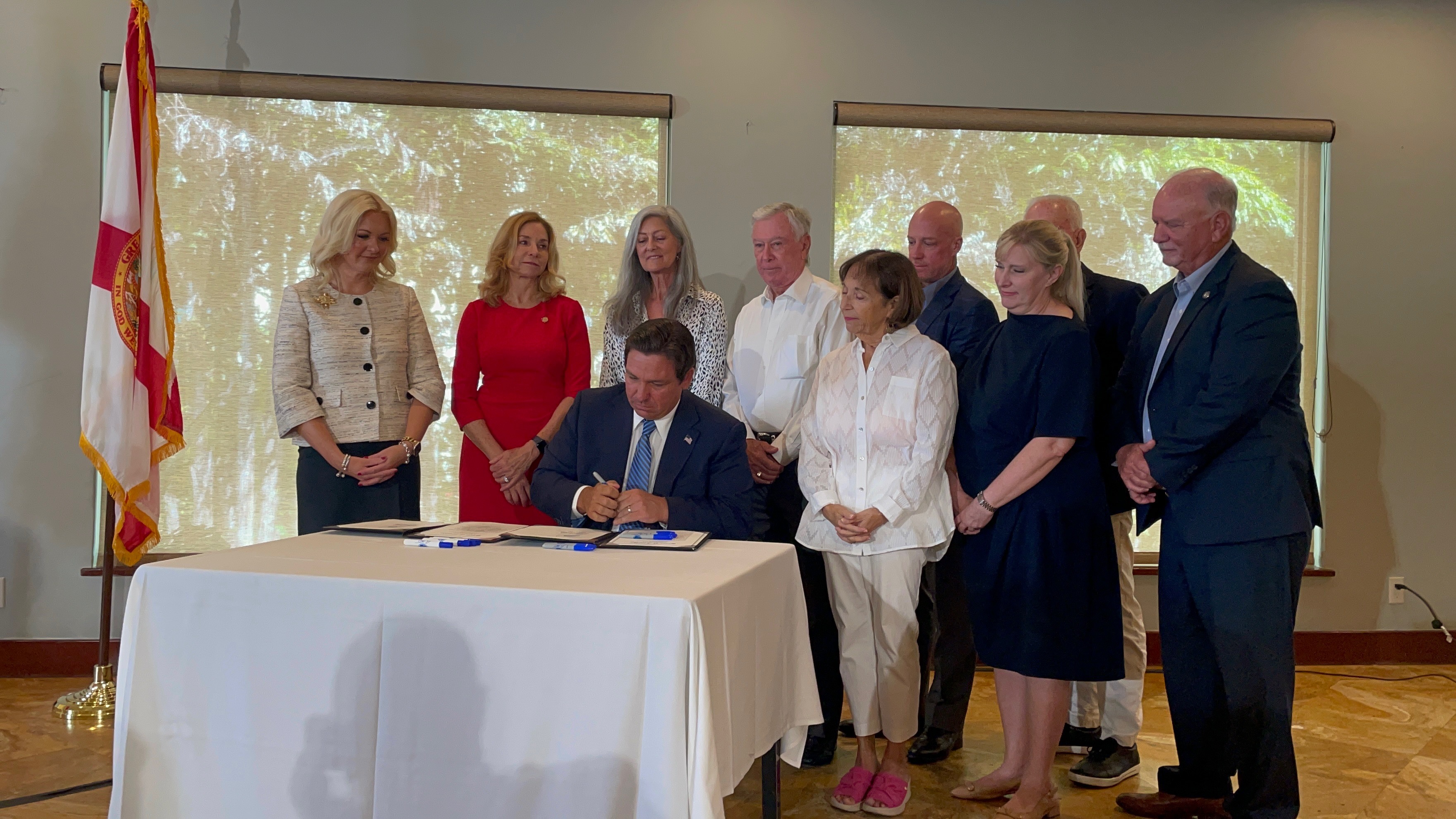Landmark Legislation Advances Structural Integrity and Affordability for Florida Condominiums.

(Florida Governor Ron DeSantis signs new laws to strengthen condo safety and provide financial relief for homeowners)
Earlier this week, Florida Gov. Ron DeSantis signed into law two critical pieces of legislation—HB 393 and HB 913—that strengthen building safety standards while thoughtfully addressing the financial realities facing condominium homeowners.
Backed by the Community Associations Institute and driven by the leadership of the CAI Florida Legislative Alliance, these new laws represent a balanced approach to condominium safety reform. They reinforce structural integrity requirements in the wake of the 2021 Surfside tragedy, while also providing greater financial flexibility to help communities plan for and fund necessary repairs.
This legislative success delivers long-term protections for Florida’s 50,100 condominium communities, particularly benefiting first-time homebuyers, seniors, and working families by ensuring that safety improvements are implemented in a responsible, sustainable manner.
Community Associations Institute, the leading international authority supporting condominium associations, homeowners associations, and housing cooperatives, applauds the bipartisan collaboration behind these reforms. CAI recognizes the leadership of state Sens. Jennifer Bradley and Jason Pizzo in spearheading this critical legislation. These new laws reflect a collective effort to improve safety, transparency, and affordability for Florida condominium residents.
“Florida continues to lead the nation in condominium safety and structural integrity legislation,” said Dawn M. Bauman, CAE, chief strategy officer of CAI and executive director of the Foundation for Community Association Research. “These laws strike a critical balance maintaining strong safety standards while addressing the financial realities of homeownership.”
Effective July 1, House Bill 913 introduces critical financial flexibility by allowing associations to fund required repairs through reserve pooling, special assessments, or loans. It delays the Structural Integrity Reserve Study deadline by one year and permits a two-year pause in reserve contributions so communities can prioritize urgent safety repairs. The law also raises the minimum replacement cost for items included in the SIRS from $10,000 to $25,000, focusing resources on more significant repairs.
House Bill 393 expands the My Safe Florida Condominium Pilot Program that provides state-matched grants for hurricane mitigation projects. Based on feedback from condominium owners, the updated program lowers the owners approval threshold to 75 percent, allows roof replacements, and ensures funded improvements result in insurance discounts or mitigation credits.
CAI continues to advocate for policies that emphasize safety and proactive maintenance, protect investments, and support homeowners’ financial stability. The organization is proud to be the driving force behind meaningful policy that keeps condominiums structurally sound and residents safe in Florida, nationwide, and around the world.
